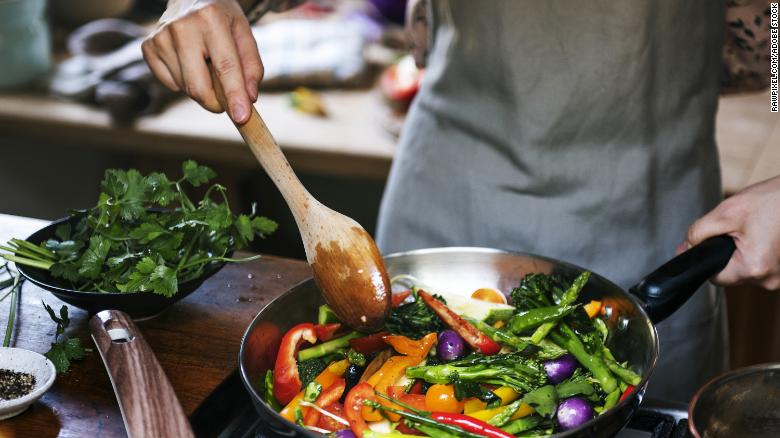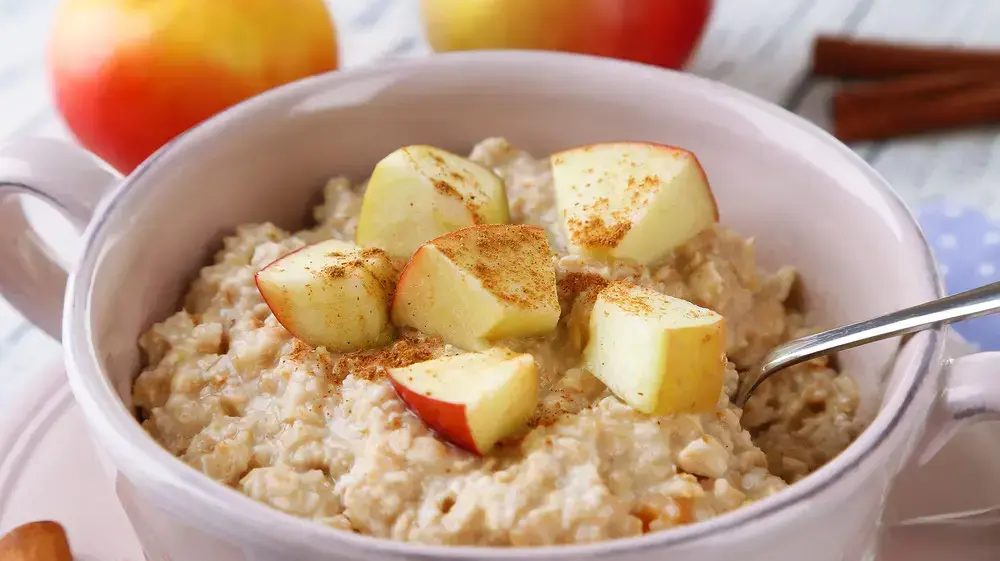5 ways to help the planet by changing your diet 3:11
(CNN) --
Eating a plant-based diet has shown good results for your heart and overall health, as well as for the planet.
In fact, a recent study found that a young person could live an additional 13 years if they ate more vegetables and legumes, in addition to whole grains, fruit and nuts.
For those, the conclusions of a new analysis on the diet of almost 400,000 adults in Great Britain, which was published this Monday in the magazine
Frontiers in Nutrition
, are quite shocking: eating vegetables, especially cooked, does not reduce the risk of suffering from diseases heart failure in the future.
"Our large study found no evidence of a protective effect of vegetable intake against the occurrence of CVD (cardiovascular disease)," Qi Feng, an epidemiologist at the Nuffield Department of Population Health at the University of Oxford, said in a statement.
PHOTOS |
The Best Ways to Cook Vegetables for a Nutrition Boost
While the study found that eating raw vegetables could protect against heart disease, cooked vegetables did not.
Any benefit disappeared when the researchers took into account lifestyle factors such as physical activity, educational level, smoking, alcohol consumption, fruit intake, consumption of red and processed meat, and use of mineral supplements and vitamins.
"Instead, our analyzes show that the apparently protective effect of vegetable intake against CVD risk is most likely due to a bias ... related to differences in socioeconomic status and lifestyle," Feng said.
advertising
Don't Go So Fast, Critics Warn
But don't start partying just yet, veggie haters.
UK and US experts were quick to criticize the study's conclusion.
"While this study found that eating more vegetables was not associated with a lower risk of heart and circulatory disease when lifestyle and other factors were taken into account, that doesn't mean we should stop eating vegetables," Victoria said. Taylor, senior dietitian at the British Heart Foundation, in a statement.
"There is strong evidence from clinical trials showing that eating high-fiber foods, such as vegetables, can help reduce weight and improve levels of risk factors known to cause heart disease. This observational study cannot pass such tests and their conclusions may be debated as the authors may have over-adjusted for factors explaining lower vegetable intake," said Naveed Sattar, professor of cardiovascular and metabolic medicine at the University of Glasgow in Scotland, through a statement.
Will you fulfill your resolutions this year?
These diets could help you achieve them
"The results are not surprising. Choosing a single component and assuming that simply adding it to the diet, say vegetables, is not likely to produce the desired effect," Alice Lichtenstein, director and scientist, told CNN in an email. head of the Cardiovascular Nutrition Laboratory at Tufts University.
"One thing that has become clear in the last decade is that we shouldn't be looking at individual foods or nutrients, but at the whole dietary pattern," added Lichtenstein, who is also a professor of nutrition science and policy at Tufts University.
Just 5 tablespoons of vegetables
The study used data from the Biobank of Britain, a longitudinal study of almost half a million British adults designed to investigate how genetics and environment contribute to many common diseases.
At the beginning of the study, people were asked how many raw and cooked vegetables they ate.
And then they were followed for more than 10 years to see if they developed heart disease.
On average, participants in the study from Great Britain reported eating an average of 5 tablespoons of vegetables a day, that's just 71 grams or a third of a cup.
About 2.5 tablespoons were raw vegetables, the other three were cooked.
"That's very little," said Dr. Andrew Freeman, co-chair of the American College of Cardiology's Nutrition and Lifestyle Task Force.
The UK Dietary Guidelines recommend five servings of fruit and vegetables a day, each around 80 grams (1 cup), for a total of 5 cups a day.
In the US, the guidelines are more specific, recommending that most adults eat at least 1.5 to 2 cups of fruit and 2 to 3 cups of vegetables a day as part of a healthy diet.
Translating cups into tablespoons, a healthy vegetable intake would include up to 48 tablespoons of vegetables per day.
"That's a ton of tablespoons," Freeman said.
"So the question is: If these people in the study were eating such a small amount of vegetables, what else were they eating, and to what extent did that affect the results?"
What replaces vegetables?
A change in diet can add years to life, according to study 0:55
Gunter Kuhnle, professor of nutrition at the University of Reading in the UK, also pointed to the impact of other food choices.
"People who don't eat vegetables have to eat something else. And when calculating the health effect of eating vegetables, it's important to consider what you're substituting for," Kuhnle said in a statement.
"Substituting carrot sticks for a sugary snack is likely to improve health, and have a beneficial effect on CVD risk. This would not be the case when substituting carrots for a whole-grain snack," he said.
What is the result for the public that eats (and hates) vegetables?
"This is a very interesting study, but it should not be used as a justification to stop eating vegetables," Kuhnle said.
"The best advice we can give people is to focus on your entire diet, which foods to emphasize as well as which to minimize," Lichtenstein said.
"Overall, I think the data continue to support the beneficial effects of a dietary pattern high in fruits, vegetables, whole grains, legumes, fish, nonfat and low-fat dairy, and relatively low in added sugar and salt."
food vegetables








